Rich Mnisi’s furniture is ‘designed for the human body’
Rich Mnisi’s first solo show at Cape Town’s Southern Guild gallery (until 4 February 2022) encapsulates his multifaceted approach to design
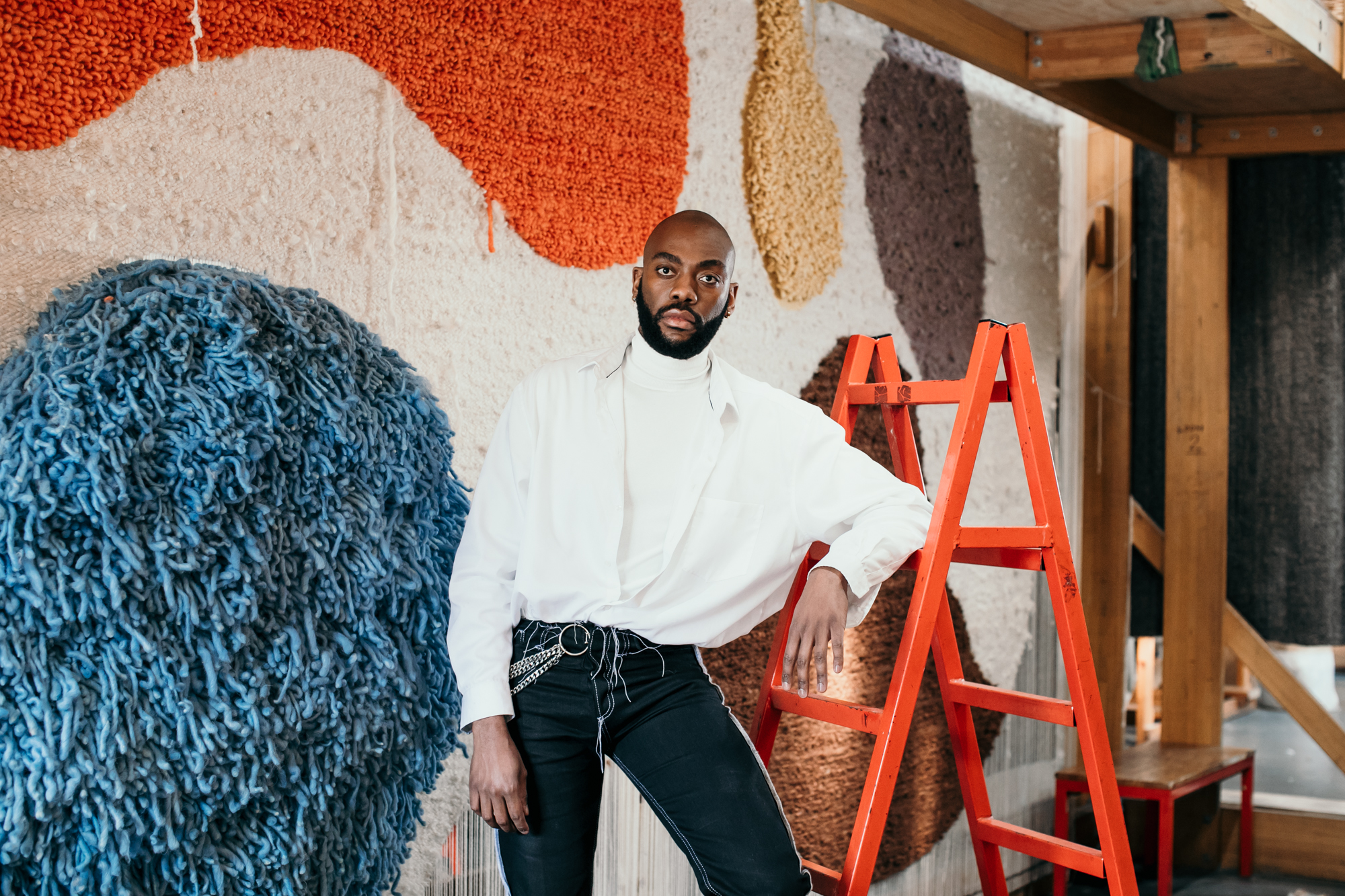
Stephanie Veldman - Photography
‘When I design, I do it from a personal place. But in terms of describing what I do, I would probably settle with “artist”, because it has fewer limitations and I enjoy working in multiple disciplines,’ says South African designer Rich Mnisi. Best known for the eponymous fashion brand he founded in 2015, as well as his photography practice and social advocacy platform Thoughts, Mnisi has since expanded his work to furniture design. A series of much-lauded pieces, shown as part of group exhibitions at Cape Town’s Southern Guild gallery, have culminated in a highly anticipated solo show, ‘Nyoka’ (until 4 February 2022).
Rich Mnisi's furniture design
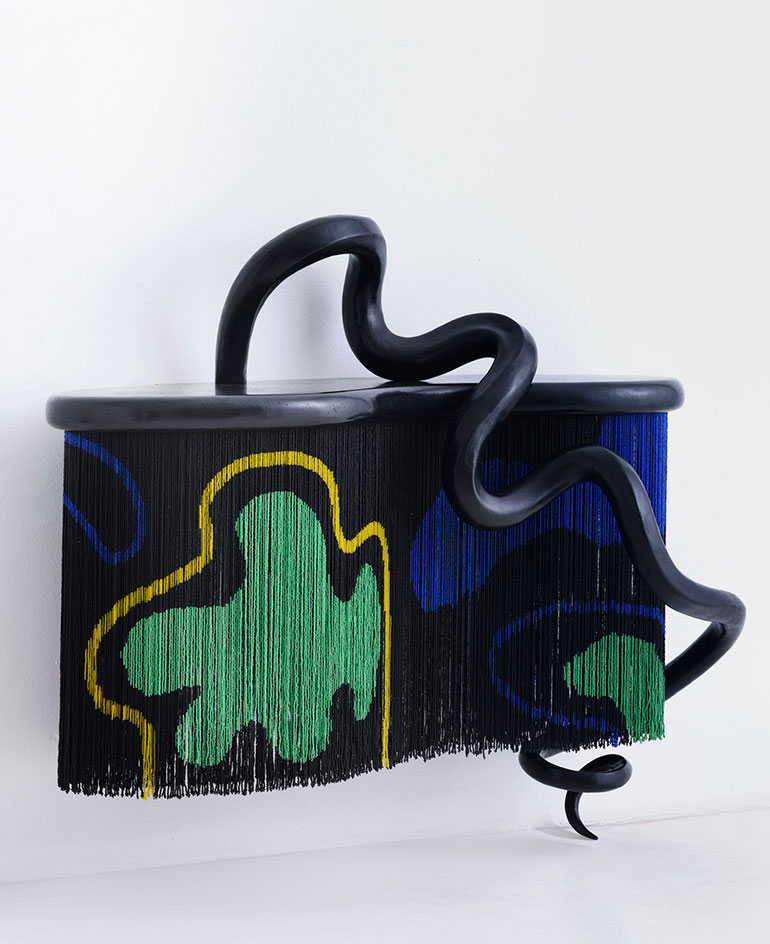
‘Nyoka (Snake)’ beaded console table, part of Mnisi’s new ‘Nyoka’ show.
For Mnisi, designing furniture was a natural progression from fashion. ‘When I create a fashion collection, if I had 15 runway looks, the 16th had to be an object or something that would describe the collection,’ he says. ‘Sometimes it was a starting point in design or the end point.’ This bookending lent itself to expanding theses, especially when he felt the realm of apparel proved limiting.
Nyoka means ‘snake’ in Mnisi’s native language of Xitsonga, and Mnisi presents the show as a discourse on duality, and how fear and revulsion can birth beauty and augment community. ‘My mother told me she had a nightmare and there was a snake and it was beautiful, but she was frightened of it,’ he recalls. ‘My whole family is frightened of snakes, so it became something that I wanted to investigate.’ The personal expanded into the political and cultural when Mnisi remembered the story of Bumba, a Congolese deity who, in the traditional creation myth, birthed the universe and all its contents through vomiting violently.
‘How humanity came about has been explored from very few perspectives,’ says Mnisi. ‘It’s often from a Christian point of view, where there is this idea of God, or from science, where it started from the Big Bang. And then I think about Bumba and this crazy loneliness, living in the universe alone and then vomiting everything that we now know. It was so beautiful because he then fathered it, and there was a weird transition from being in so much pain and so uncomfortable to having something that was so beautiful that he takes care of it.’
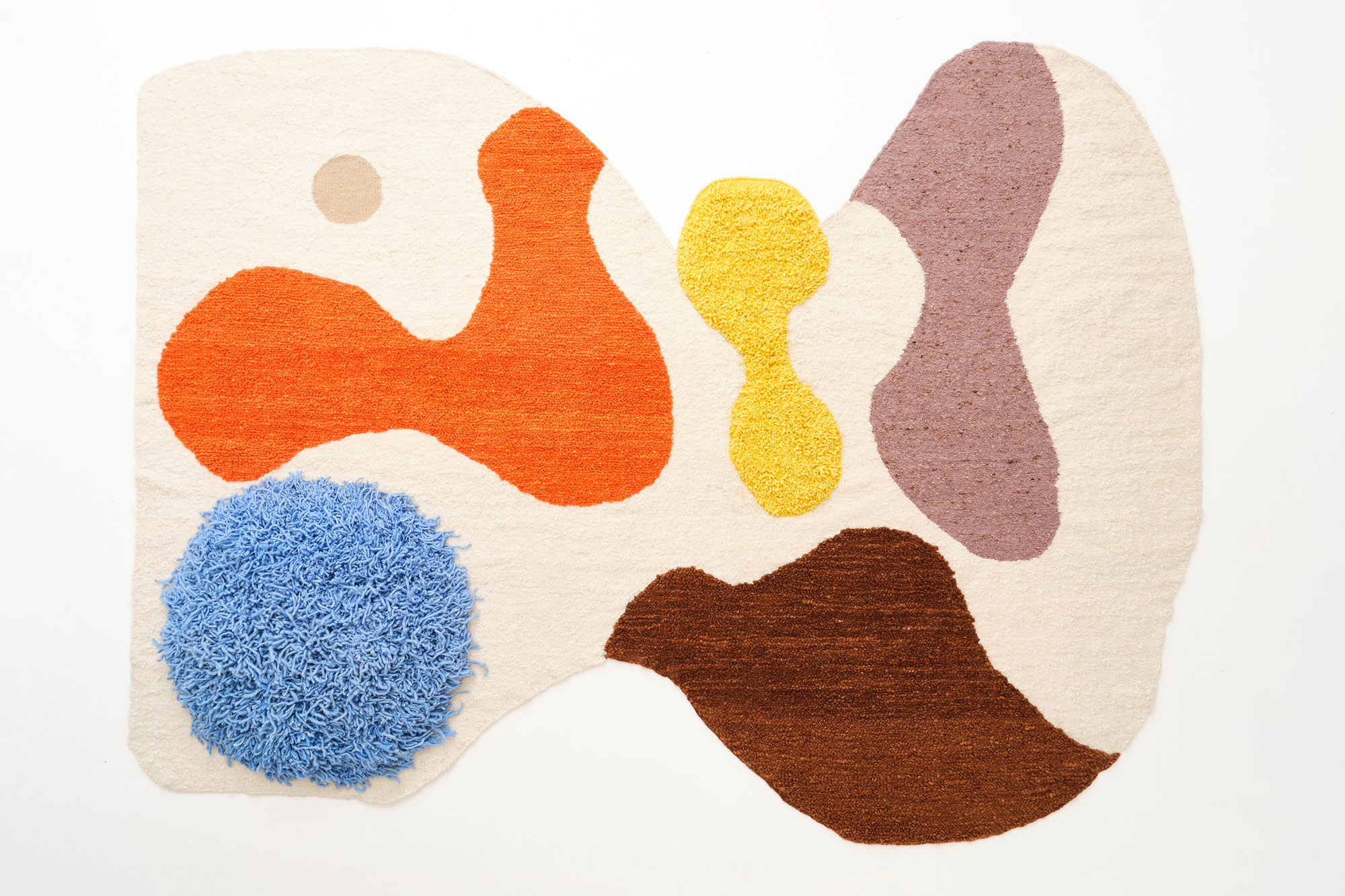
The ‘Nwa’ntlhohe (Pure Beauty)’ rug.
Mnisi translated these ideas into a collection that included seating, lighting, a console, a rug and objects. In using varied materials, including bronze, wool, beads and leather, selecting co-creators from a range of disciplines, and blending traditional craft with modernity, he has created a contemporary fable of what African design is today: ‘The whole show was a very collaborative effort. A lot of the materials were selected through exploration and just having conversations.
So, for one piece, we have this beaded console and the beads were done by this local NGO, MonkeyBiz, and the ladies at Coral & Hive made the rug out of wool and mohair.’ Incorporating craft, sourcing materials locally and engendering crosscultural exchange are hallmarks of how Mnisi works across creative practices.
But, with ‘Nyoka’, the larger scale brought new opportunities, ones which were not guided by immediate commercial concerns: of the rug, he says, ‘It’s this humongous rug, and there are so many textures and so much movement to it, but I didn’t place it in a home when designing as that would limit how far I took it, because I would think of the user’s convenience.’ Staying true to the vision was imperative: ‘It was about creating things that left my body naturally.’
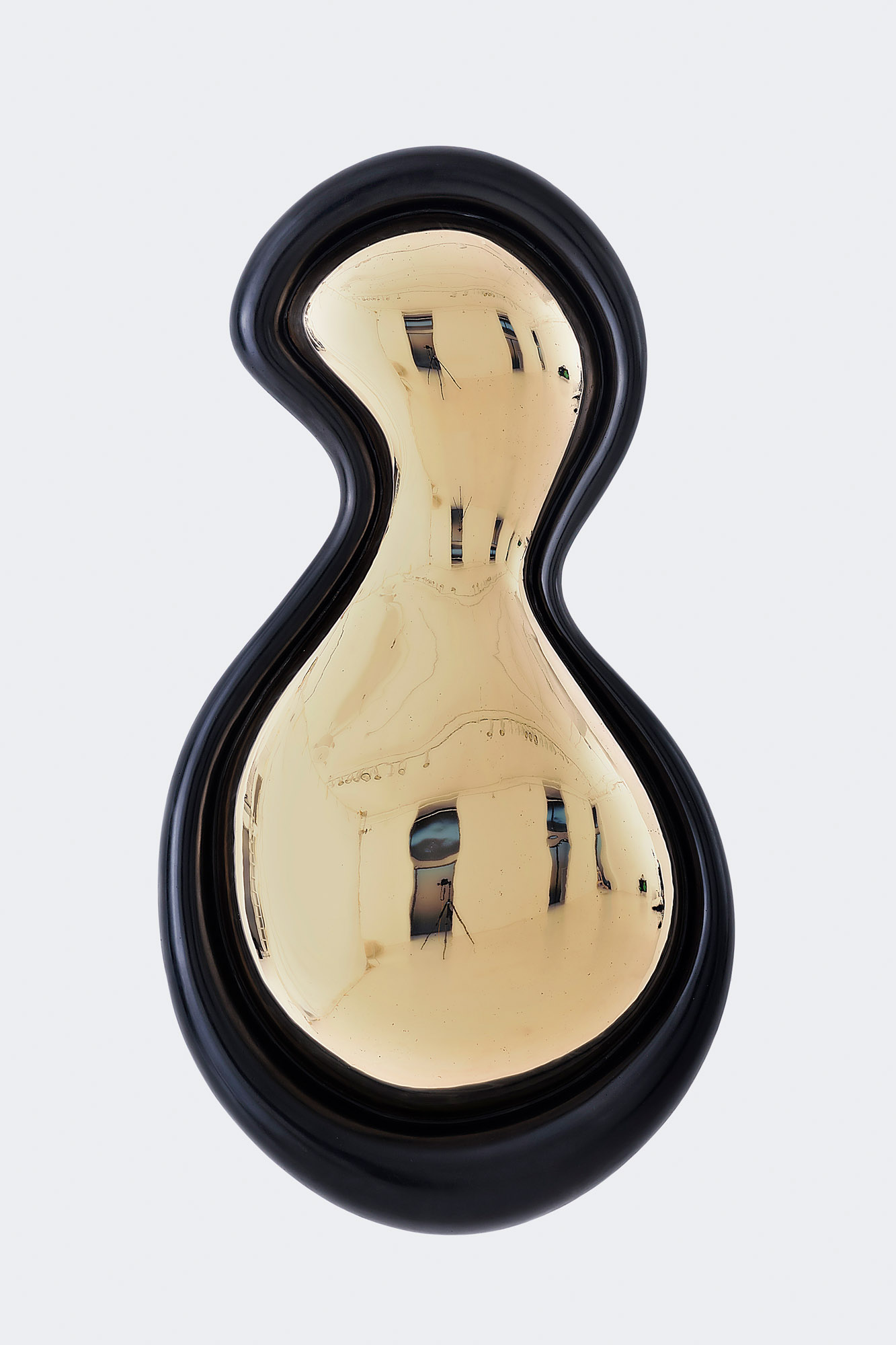
‘Rivoningo (To Reflect)’ wall art.
Given Mnisi’s design approach, Southern Guild proved a natural home for his work. Since opening in 2008, the gallery’s founders, Trevyn and Julian McGowan, have positioned it as a hub for the reimagining of African design, and have developed partnerships and projects that support this mandate. ‘There was a certain level of consultation,’ Mnisi observes. ‘They want to get into my world as opposed to having me fit into whatever the industry says. There was this calmness, the idea of refining a piece to its capacity, all of those things are what drew me to working with them in the beginning and continuing with them.’
Wallpaper* Newsletter
Receive our daily digest of inspiration, escapism and design stories from around the world direct to your inbox.
Mnisi used his initial forays into object design to explore notions of furniture, adding: ‘I had to shift my brain from thinking of furniture as this one thing that can only look a certain way. I thought of designing for the human body; either for it or creating the human body. And that is where a lot of the shapes in the beginning came from – they came from human structures and how the body moves and how it embraces you.’
His initial pieces were inspired by his late great-grandmother. ‘The idea of the ‘Nwa- Mulamula’ chaise came from how I didn’t meet her and there are no photographs of her. It came from pain and then I almost had to translate that and see the light in it. There’s the duality again, because the truth is that, after my mother and my aunt leave this planet, no one else will speak about her, and that idea didn’t sit well with me.’ Tackling ideas of erasure from a domestic perspective invites the viewer to consider all those whose contributions aren’t documented or remembered, but whose presence remains felt. To convey this via a piece of furniture that can act as a place for contemplation is novel and compelling.
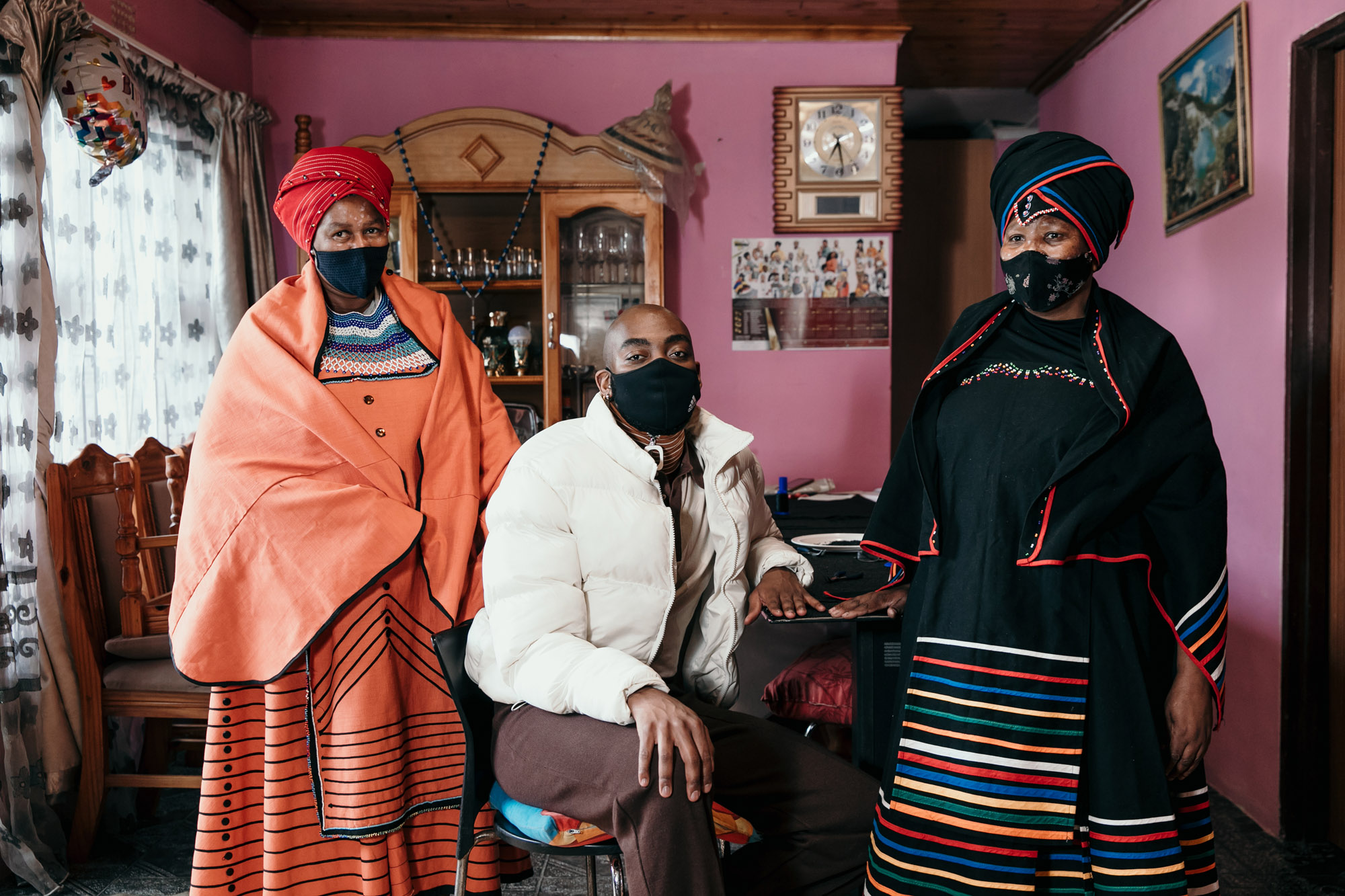
Mnisi with beaders from local NGO MonkeyBiz, who created the curtain of the ‘Nyoka’ console tabl
Mnisi is representative of a number of creatives who refuse to be pigeonholed. He doesn’t reference any individuals specifically as direct inspiration, but he acknowledges an affinity with Rick Owens because they’re both fashion designers that cross over into furniture, and the furniture looks like the clothes and vice versa. Perhaps what makes Mnisi distinctive is his fluid approach to creating companion collections across disciplines and segueing influences from across the African continent. Of the nascent African design scene, he says, ‘It’s exciting because people are telling personal stories, and the references are things we all relate to.’
Self-recognition and actualisation are the foundation for empowerment, and Mnisi is creating furniture for the home and pieces for the body that invite individuals and communities on a journey of aesthetic self-expression, beautification and renewal.
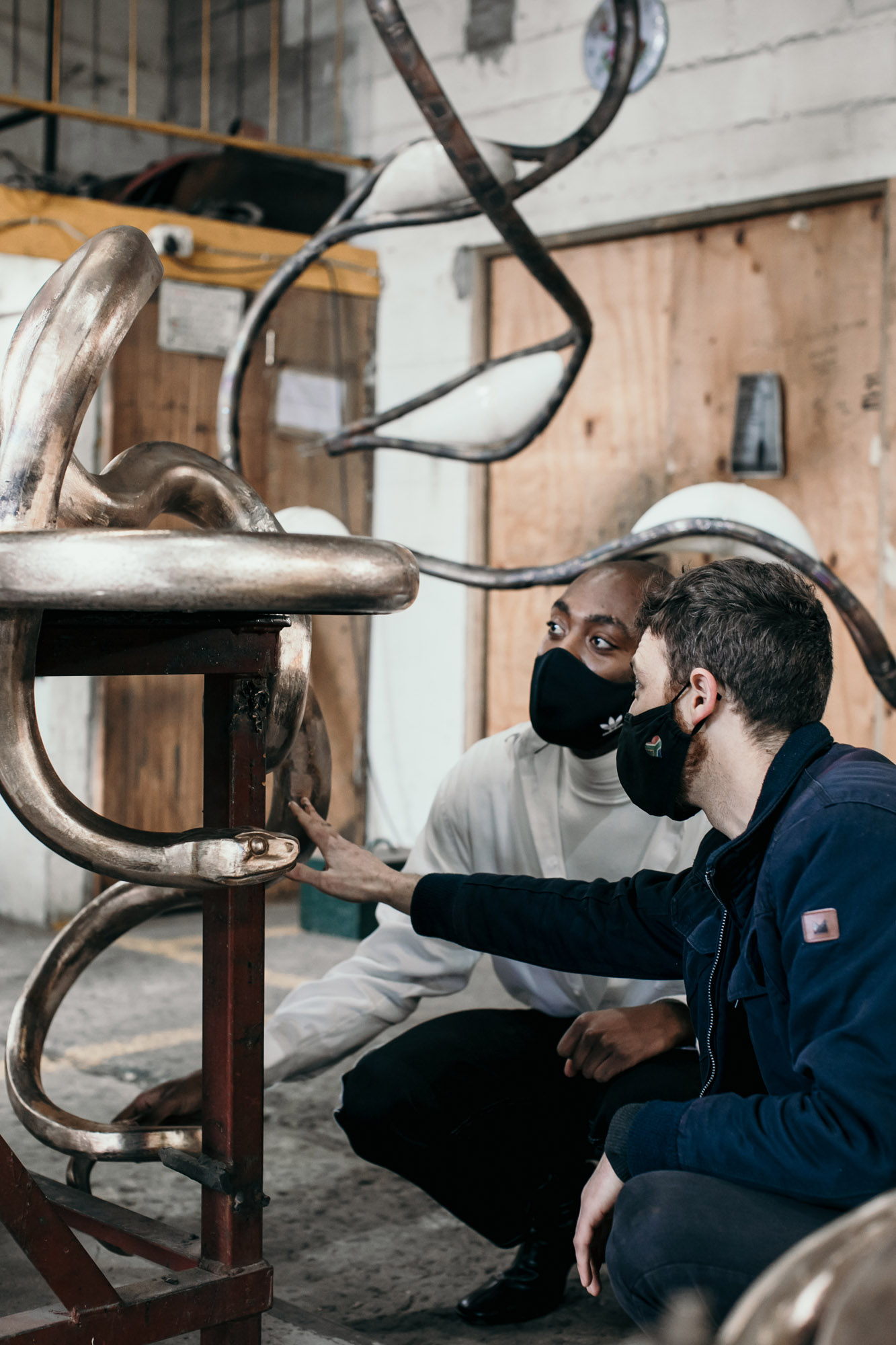
Mnisi with artist Trevor Potter, who sculpted the snake for the console, at the foundry where the bronze casting was done.
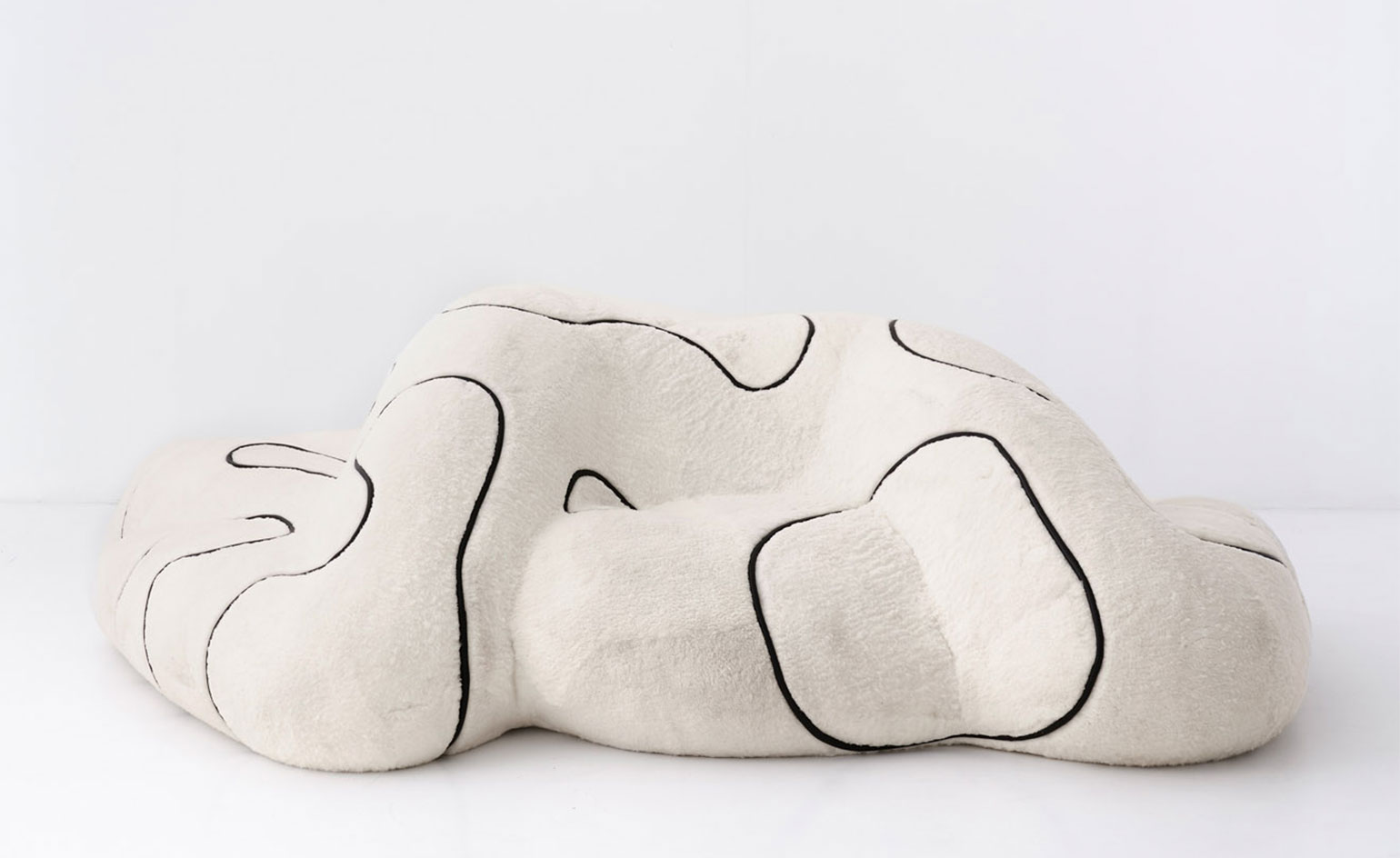
‘Vumboni (Testimony) I’ seating.
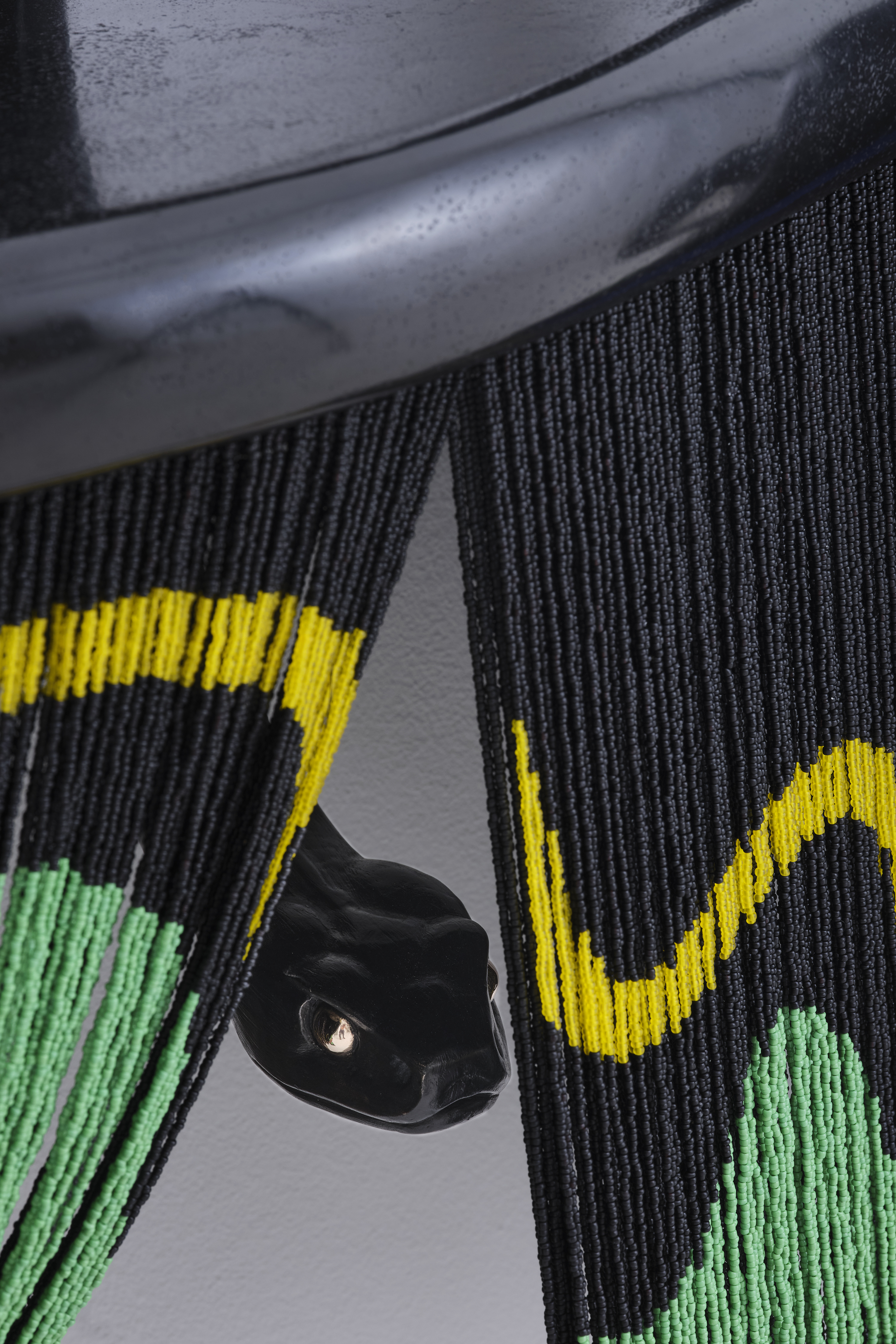
Detail of the ‘Nyoka (Snake)’ beaded console.
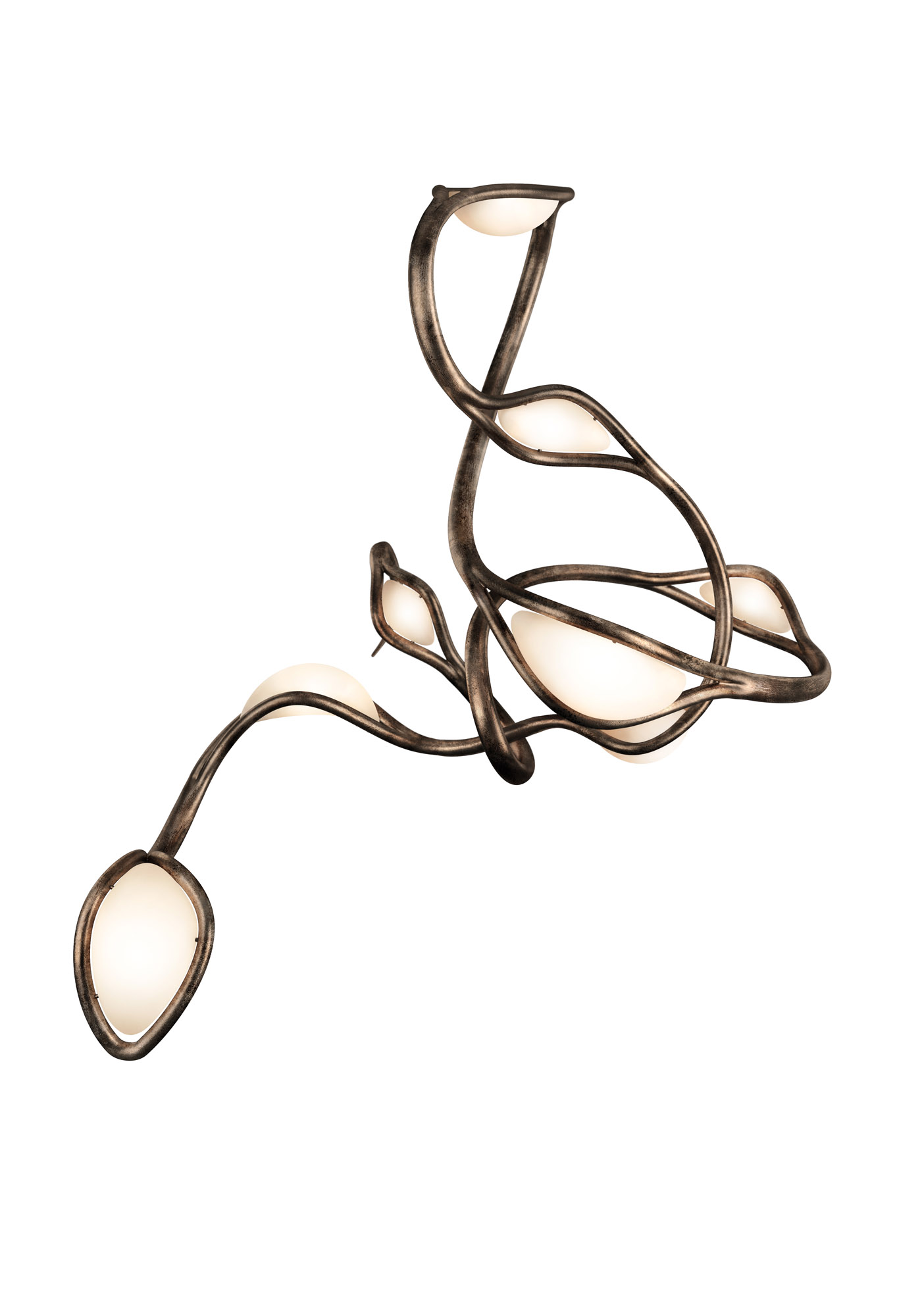
‘Vutlhari (Wisdom)’ light.
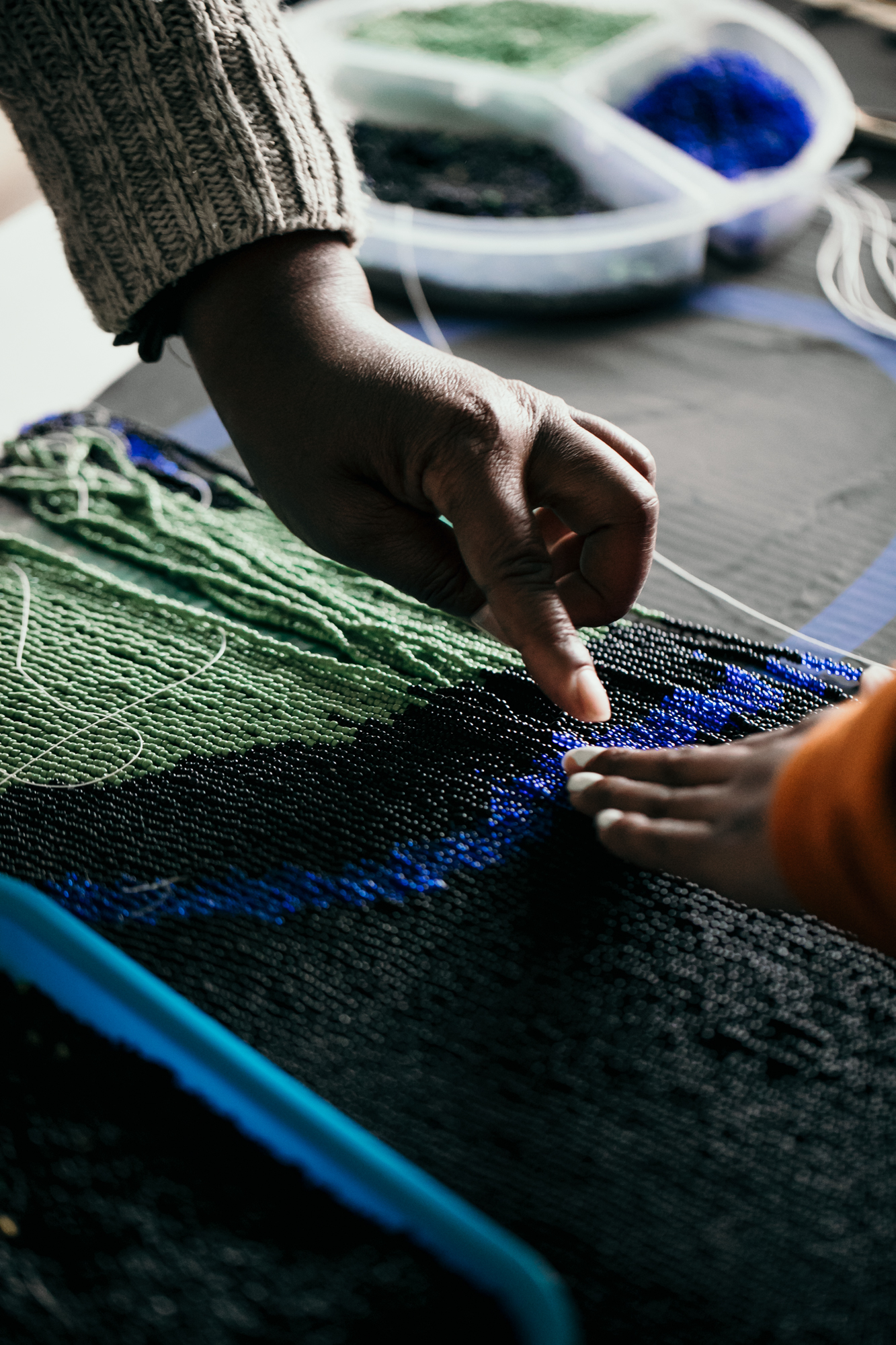
Beading in progress.
INFORMATION
‘Nyoka’ is on show until 4 February 2022 at Southern Guild, Cape Town
southernguild.co.za
richmnisi.com
Mazzi Odu is a Ugandan-British writer, editor and cultural consultant based in Lagos, Nigeria. Her work focuses on jewellery, design, fashion and art. An alumna of the London School of Economics and Political Science, she has profiled a cross section of leading design talents and creative voices, with a special emphasis on those from the Global South and its Diaspora communities.
-
 Put these emerging artists on your radar
Put these emerging artists on your radarThis crop of six new talents is poised to shake up the art world. Get to know them now
By Tianna Williams
-
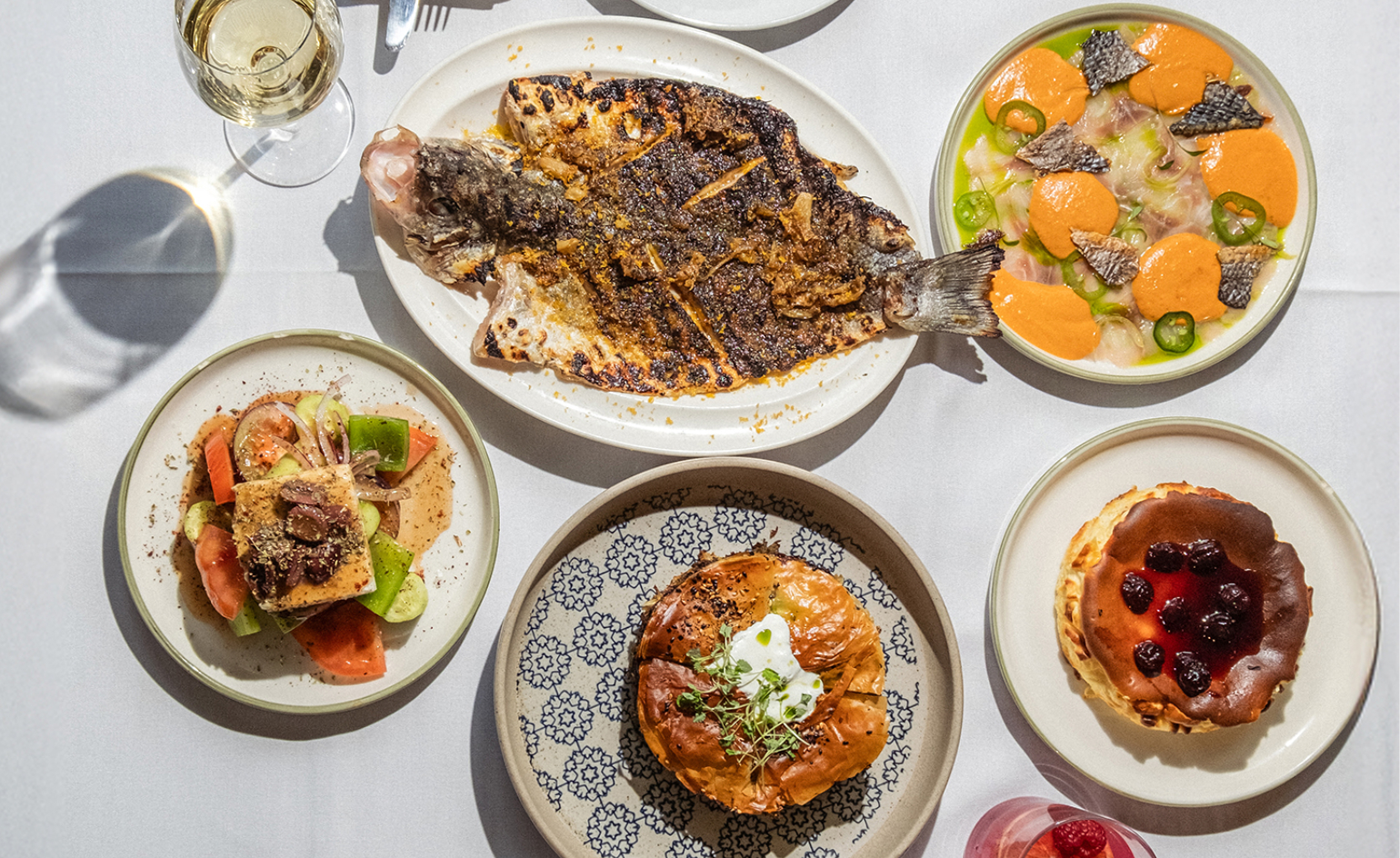 Dining at Pyrá feels like a Mediterranean kiss on both cheeks
Dining at Pyrá feels like a Mediterranean kiss on both cheeksDesigned by House of Dré, this Lonsdale Road addition dishes up an enticing fusion of Greek and Spanish cooking
By Sofia de la Cruz
-
 Creased, crumpled: S/S 2025 menswear is about clothes that have ‘lived a life’
Creased, crumpled: S/S 2025 menswear is about clothes that have ‘lived a life’The S/S 2025 menswear collections see designers embrace the creased and the crumpled, conjuring a mood of laidback languor that ran through the season – captured here by photographer Steve Harnacke and stylist Nicola Neri for Wallpaper*
By Jack Moss
-
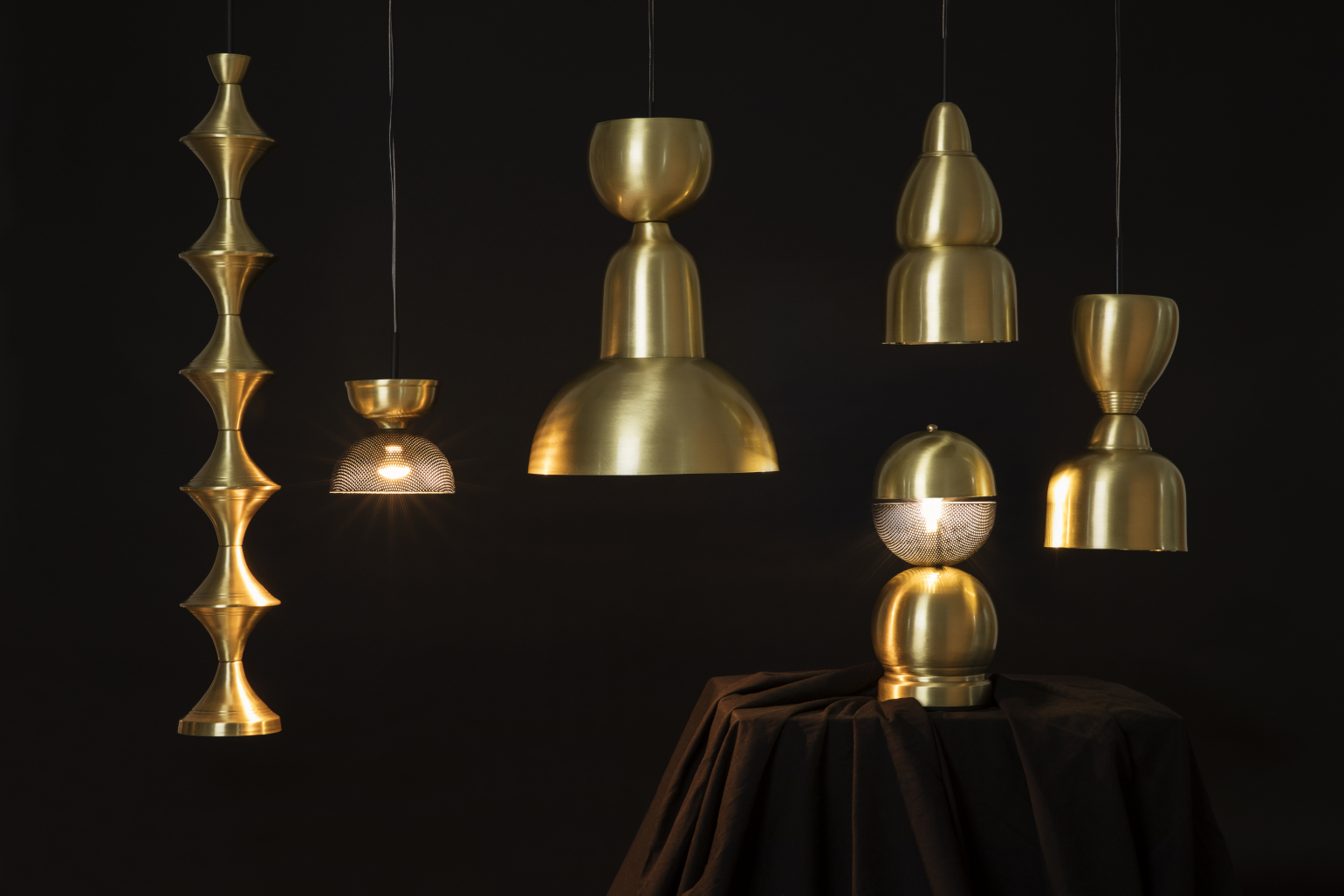 Thabisa Mjo and Mash.T unveil sculptural brass lighting
Thabisa Mjo and Mash.T unveil sculptural brass lightingNew brass lighting by South African designer Thabisa Mjo, founder of design studio Mash.T, brings a contemporary edge to a traditional material
By Ugonna-Ora Owoh
-
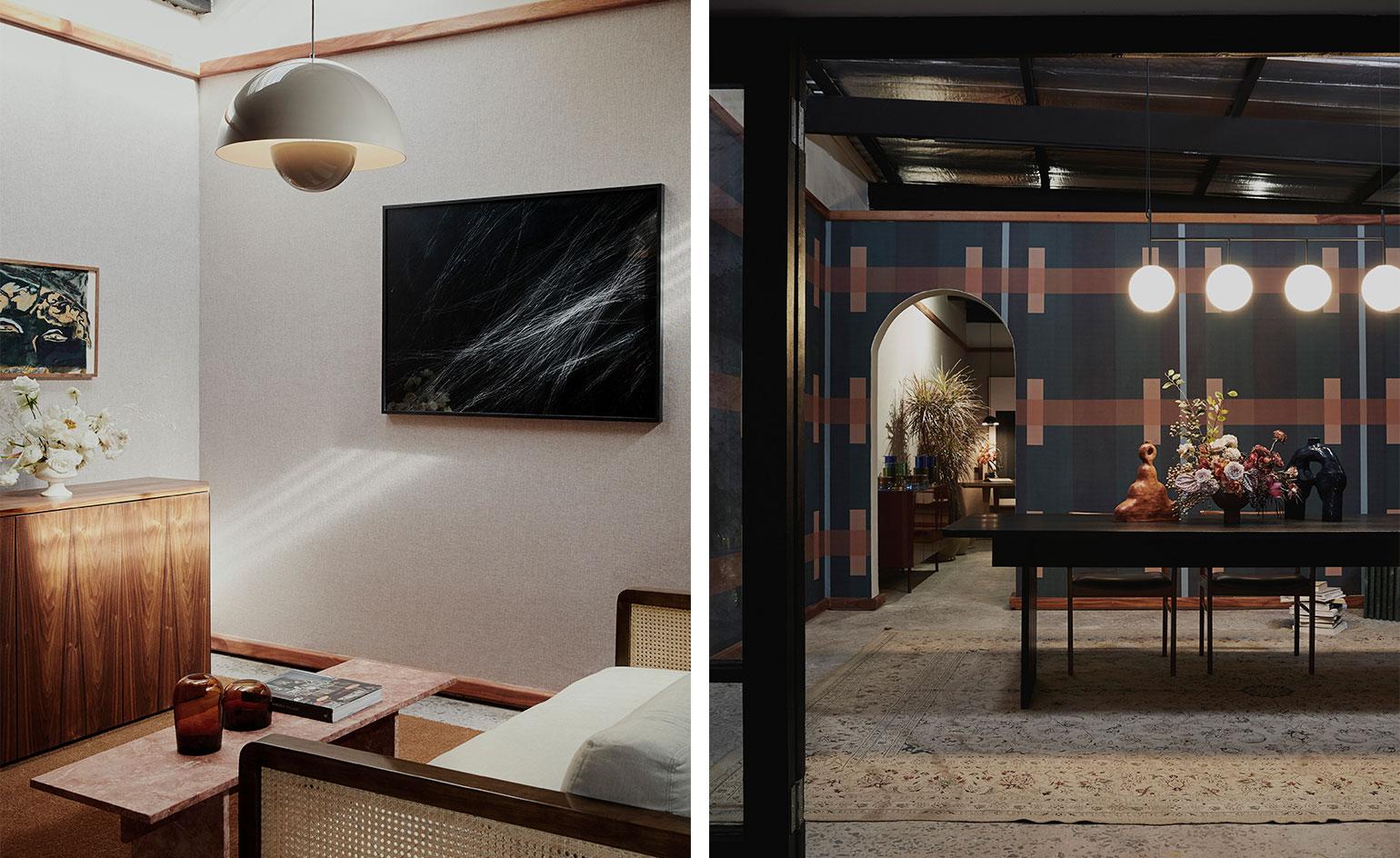 Lemon studio grows with new creative emporium in Cape Town
Lemon studio grows with new creative emporium in Cape TownBy Luke Halls
-
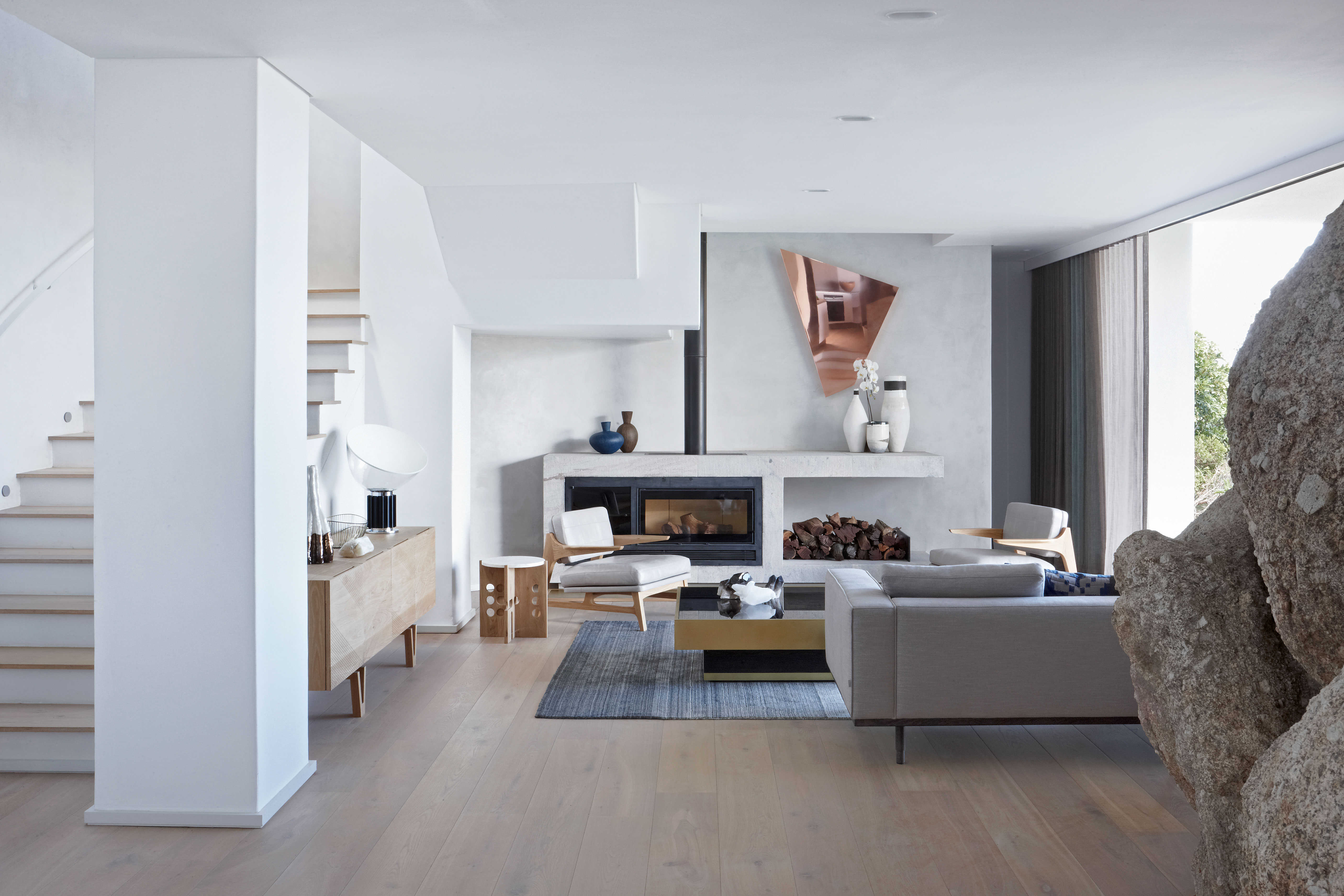 This coastal concrete retreat is a masterclass in African modernist design
This coastal concrete retreat is a masterclass in African modernist designBy Luke Halls